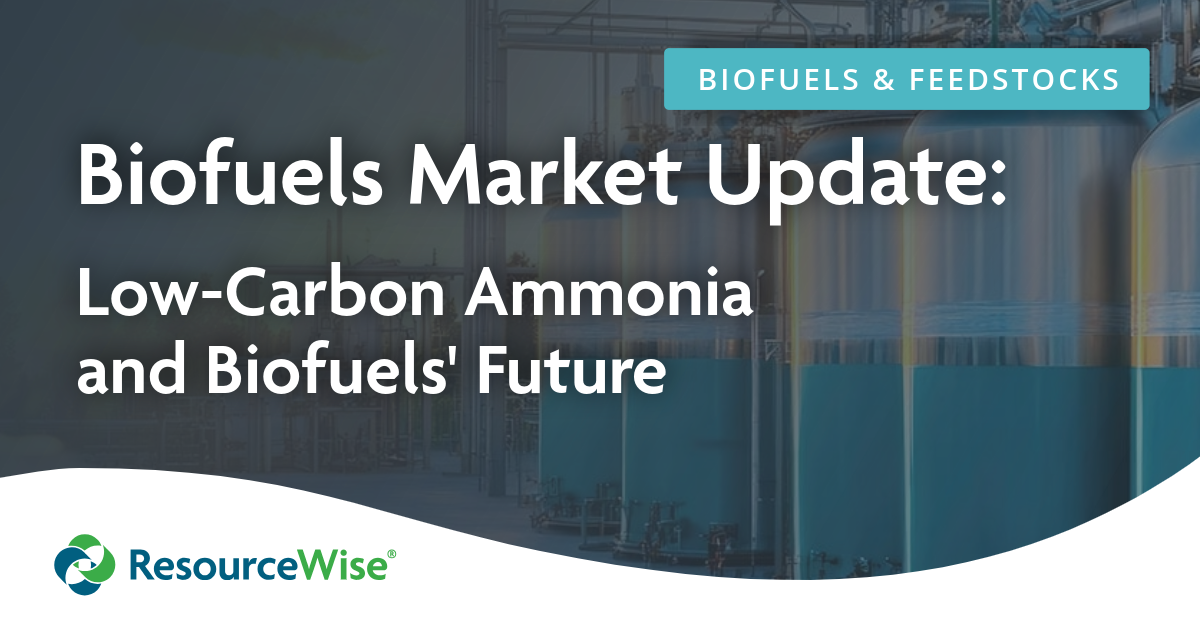
It has been nearly half a century since the first-ever iteration of the premier event, the World Chlor-Alkali Conference. The legacy company that underpins ResourceWise's world-class insight into the vital chemical sector producing caustic soda and chlorine hosted the first event and is partnered with ICIS to deliver it now.
Now in its 28th year, the chlor-alkali-focused event was born in London in the 1980s. It moved to Singapore—where it is held routinely—before we welcomed our co-host ICIS onboard in 1994.
The 28th ResourceWise and ICIS World Chlor-Alkali Conference will be held at the PARKROYAL COLLECTION Pickering in the heart of Singapore's Central Business District from June 19 to 20, 2024. Early bird rates are available until March 14, 2025. ResourceWise will partner as host of the event and bring decades of chlor-alkali business intelligence and vital insight from its key downstream sector, pulp and paper.
With the folding of the World Chlor-Alkali Conference's original organizer, Tecnon OrbiChem, into the ResourceWise group of companies, comprehensive oversight of chlorine and caustic soda use in mills globally was added to our insight mix.
2025 marks the third year that the event included a dedicated presentation on this key chlor-alkali downstream sector from one of the partner organizers.
 Our chlor-alkali and vinyls-focused senior consultant, Carol Li (pictured right), will showcase the company's leadership in the sector's analysis by speaking of the opportunities and challenges facing Asian markets that she reports on from her base in China.
Our chlor-alkali and vinyls-focused senior consultant, Carol Li (pictured right), will showcase the company's leadership in the sector's analysis by speaking of the opportunities and challenges facing Asian markets that she reports on from her base in China.
Li's insights will be drawn from an extensive range of chlor-alkali-related price benchmarks and associated analyses.
Our chemicals sector data analytics platform, OrbiChem360, has twenty-seven price benchmarks for chlorine and caustic soda as of 2025.
 From her European base, Hira Saeed, ResourceWise Senior Consultant Chemicals, covers the western region's caustic soda markets.
From her European base, Hira Saeed, ResourceWise Senior Consultant Chemicals, covers the western region's caustic soda markets.
Li and Saeed use the insights they garner from the wide range of market participants they regularly canvas to provide vital information to delegates.
Our OrbiChem360 platform also features dozens of price indexes for chlor-alkali derivatives, including PVC, vinyl chloride monomer, epichlorohydrin, and EDC.
Several experts from our partner ICIS will also give presentations during the two-day event. They include Vinyls America Director Kelly Coutu, Singapore-based Market Development Director Malini Hariharan, and Italy-based Petrochemical Analyst Valentina Cherubin.
Key Themes
Navigating Global Trade Flows and Geopolitical Tensions
Understanding how changing trade policies and regional protectionism are shaping the market.
Decarbonization and Green Initiatives
Sustainable production methods, hydrogen-powered processes, and the role of the chlor-alkali industry in achieving carbon neutrality.
Emerging Market Growth
Focusing on India and Southeast Asia as high-growth regions, with discussions on balancing caustic soda and chlorine demand.
Technological Innovations
Spotlighting advances in bio-based production, efficiency improvements in brine treatment, and innovations for green caustic soda.
Key Demand Drivers
Examining the impact of industries like electric vehicles, alumina, PVC, and pulp & paper on chlor-alkali markets.
World Chlor-Alkali 2025 Agenda
Day 1: June 19, 2025
Global Market Overview: Navigating Uncertainty and Building Resilience
Hira Saeed, Senior Consultant, ResourceWise ● Carol Li, Senior Consultant, ResourceWise
What trends and risks are impacting the global chlor-alkali sector as of 2025? An exploration of chlor-alkali sector supply, demand, and pricing dynamics versus rising inflation and energy costs drive operational strategies globally. How can businesses build resilience against future uncertainty while nurturing growth?
An Economist's Perspective on Navigating Uncertainty and Building Resilience
Sean Gilmartin, Equity Research Analyst, Chemicals, Bloomberg Intelligence
The presentation will delve into macroeconomic fundamentals, assessing how recent policy shifts and trade dynamics influence economic stability and shape fiscal and monetary responses. It will offer a rigorous analysis of the current global economic landscape amidst rising protectionism and market volatility.
- How do escalating protectionist measures and tariff adjustments impact global economic stability and international trade flows?
- What are the implications of these shifts on inflation, supply-demand imbalances, and monetary policy decisions?
- Which analytical frameworks and policy interventions can be leveraged to build resilience and drive sustainable economic growth in today’s volatile environment?
Market Moves and Policy Shifts: A Trader's Tactical Guide to the Chlor-Alkali Sector
This session zeroes in on the immediate implications of regulatory shifts for trading professionals. It will provide practical, actionable insights into how changes in trade policy directly affect market liquidity, pricing volatility, and risk management.
- How do evolving trade policies create short-term volatility, and what does this mean for trading liquidity in the chlor-alkali sector?
- Which tactical risk management and hedging strategies are best suited to offset the impact of rising costs and shifting regulatory landscapes?
- How can traders identify and exploit market inefficiencies or arbitrage opportunities arising from policy changes?
China's Chlor-Alkali Market: Navigating Challenges and Opportunities
Explore China's chlor-alkali product production, consumption, and market trends as its exponential growth in output puts it in a central position globally. As energy costs and regulatory pressures disrupt the country's industry, we consider the unique challenges facing Chinese producers. Find out how China's domestic policy will impact worldwide chlor-alkali trade dynamics.
India's Growing Chlor-Alkali Industry: Market Potential and Expansion Strategies
India's chlor-alkali market is growing rapidly due to rising demand across various industries. This session will explore the factors driving demand. How are energy supply issues being addressed to support production growth? How will the impact of policy changes within India affect the industry’s expansion?
Europe's Chlor-Alkali Industry: Embracing Innovation and Sustainability
Valentina Cherubin, Petrochemical Analyst, ICIS
Europe’s chlor-alkali sector is adapting to changing energy prices and regulations by focusing on innovation, sustainability, and energy efficiency.
For example, EU green policies—Fit for 55 and Carbon Border Adjustment Mechanism—are driving sustainability, carbon neutrality, and green tech optimization. How can market participants leverage EU incentives and develop strategic partnerships?
The US Chlor-Alkali Market: Navigating Growth Opportunities and Overcoming Challenges
Kelly Coutu, Director Vinyls, Americas, ICIS
This session explores the US chlor-alkali industry, highlighting opportunities and challenges faced by producers. It covers the impact of energy advantages like natural gas and renewables on production costs, the importance of export markets, and the effects of shifting trade policies.
Coutu will consider how the sector balances sustainability, environmental compliance, and innovation through automation, digitization, and workforce strategy lenses. The session will also explore the influence of policy shifts on global competitiveness, focusing on trade, energy, and regulatory changes.
Driving Synergies Between the Chlor-Alkali and PVC Industries: Navigating Supply, Demand, and Pricing Fluctuations
The PVC industry is vital to the chlor-alkali sector, but what does the current demand for PVC in construction look like? Find out how fluctuating chlorine and caustic soda prices impact PVC production costs. As regulatory changes and environmental policies are rolled out, explore how producers are securing long-term supply agreements in competitive global markets.
The Pulp and Paper Industry: Unpacking Dependence on Chlor-Alkali Products in a Transforming Market
This session focuses on the challenges the pulp and paper industry faces in sourcing caustic soda and chlorine and how chlor-alkali supports operational efficiency. It explores technological advances in chlor-alkali production that can improve efficiency and reduce environmental impact, along with evolving dynamics between chlorine producers and the pulp and paper sector. The session will also examine new opportunities for collaboration, particularly in green chemistry and circular economy initiatives, to create a more sustainable supply chain.
Powering the Future: Chlor-Alkali's Role in the EV Revolution Panel Discussion
Malini Hariharan, Market Development Director, APAC, ICIS
This session will explore the role of chlor-alkali in lithium extraction, refining, and recycling in electric vehicle batteries, highlighting challenges and opportunities. It will focus on emerging technologies for efficiency and sustainability in battery production. What challenges do producers face in scaling up lithium production as demand increases? How can battery recycling initiatives complement new production efforts?
The Impact of Shipping Logistics on the Global Caustic Soda Trade
Anne Mette Hansen, VP, Global Head of Cabu Chartering, Klaveness Combination Carriers ASA
This session examines the impact of shipping logistics on the global caustic soda market. The focus will be on evolving regulations, rising costs, and changing trade routes. The impact of the International Maritime Organization's recent shipping regulations on logistics will also be explored.
How are caustic soda producers identifying new export markets and adapting logistics strategies to stay competitive?
Ethylene and Feedstock Market Dynamics: Navigating Demand, Supply, and Future Trends
A deep dive into current and future ethylene and feedstock markets, supply chain dynamics, production challenges, and emerging demand drivers.
How do crude oil, natural gas, and other feedstock fluctuations affect ethylene production economics and the industry's outlook? An assessment of market balance in light of expansions versus demand dynamics, feedstock sourcing innovations, and circular economy initiatives.
Day 2: June 20, 2025
Opening Keynote: Harnessing Innovation to Overcome Industry Challenges
This keynote will explore how technological advancements and collaboration are helping the chlor-alkali industry address current and future challenges, focusing on energy efficiency and sustainability. It will highlight innovations driving operational improvements, reducing environmental impacts, and reshaping production and logistics.
Energy Outlook 2025: Navigating Pricing and Sustainability
Explore global energy trends and their impact on chlor-alkali producers, focusing on price volatility management and sustainability. This session will also cover renewable energy adoption, energy-efficient manufacturing innovations, and strategies for addressing regional energy availability and costs disparities.
Driving Sustainability: Innovations in Alumina Refining and Chlor-Alkali Collaboration
This session will explore the link between the alumina and chlor-alkali industries, focusing on sustainability in alumina refining and caustic soda production. Spotlighting low-carbon caustic soda innovation, renewable energy adoption, and circular economy practices. Recent emission-reduction collaborations and sustainability initiatives will also be in focus.
Advancing Caustic Soda Production Efficiency: The Role of Membrane Technology
This session will explore the role of advanced membrane technologies in improving energy efficiency and reducing environmental impacts in caustic soda production.
It will highlight recent advancements that drive cost and environmental benefits, focusing on their potential for scaling across the industry.
The session will also examine real-world examples of successful adoption and discuss how other producers can replicate these successes to enhance sustainability and operational efficiency.
Hydrogen Production and Its Future in Chlor-Alkali
This session will explore how the chlor-alkali industry can contribute to green hydrogen production while addressing integration, storage, and transportation challenges. It will focus on innovations like carbon capture in chlor-alkali plants, advanced electrolyzer technologies, and scaling renewable energy solutions.
Additionally, the session will discuss success stories from producers adopting low-carbon strategies, offering a potential roadmap for others in the industry.
Chlor-Alkali in Action: Advancing Water Treatment Solutions
This session will explore the role of chlor-alkali products in addressing global water treatment challenges, including desalination and wastewater management. It will highlight how new technologies are improving water recycling and regional demand drivers and showcase case studies of successful chlor-alkali applications in combating water scarcity.
Advancements in Electrochemical Technologies for Sustainable Chlor-Alkali Production
Advancements in electrochemical technologies are revolutionizing the efficiency and sustainability of chlor-alkali production. Innovations like oxygen-depolarised cathodes have demonstrated the potential to reduce energy consumption by up to 30% compared to traditional membrane electrolyzers. Integrating renewable energy sources into electrochemical processes is crucial in reducing carbon footprints and enhancing overall process sustainability.
- How do oxygen-depolarized cathodes and other electrochemical innovations enhance energy efficiency in chlor-alkali production?
- What are the challenges and benefits of integrating renewable energy into electrochemical processes?
- How can these advancements be scaled across the industry to achieve widespread impact?
- What are the measurable reductions in carbon emissions associated with these technologies?
Digital Transformation in Chlor-Alkali Manufacturing: Enhancing Efficiency and Sustainability
The role of digital technologies in optimizing chlor-alkali manufacturing processes is becoming increasingly significant. Implementing data-driven services for membrane process chlor-alkali electrolysis exemplifies this trend. The application of digital tools in predictive maintenance, process optimization, and energy management contributes to increased operational efficiency and reduced environmental impact.
- How are data analytics and digital services transforming the membrane process of chlor-alkali electrolysis?
- What role do digital tools play in predictive maintenance and reducing downtime?
- How can digital technologies optimize manufacturing processes for better efficiency?
- In what ways do digital solutions contribute to effective energy management and sustainability?
Navigating the Global Salt Market: Implications for the Chlor-Alkali Industry
Dr. Stefan Beraud, Founder, Salt Market Information
This session explores the dynamic interplay between the salt market and the chlor-alkali industry. Attendees will learn strategies for securing a dependable salt supply, examine the economic forces driving cost fluctuations, and assess the CO₂ footprints of various salt sources. The discussion will provide actionable insights into market trends and the sustainability challenges shaping the industry's future.
- Examining strategies and challenges for maintaining a reliable salt supply amid rapid growth in the chlor-alkali market, which strategies have proven most effective in ensuring supply security?
- Analysing the economic factors influencing salt pricing and how they impact overall production costs
- How do fluctuations in salt pricing impact overall production costs in the chlor-alkali industry?
- Comparing the CO₂ footprints of various salt sources to highlight sustainability and environmental considerations






